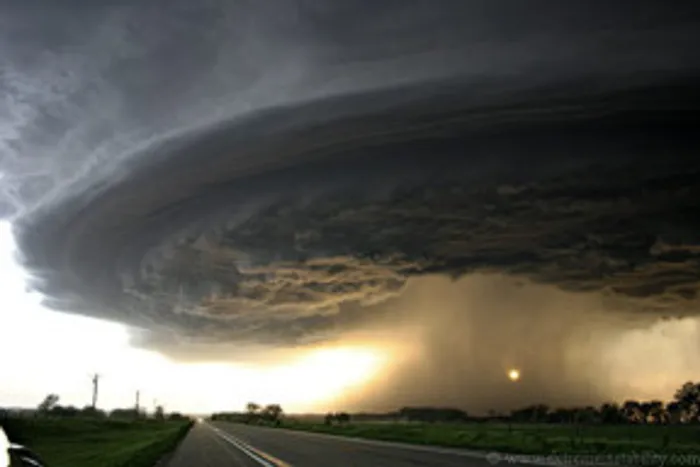Blame extreme weather patterns on humans

Melanie Gosling
Environment Writer
MANY of the heatwaves, droughts, floods and cyclones of 2014 can be linked to humans pumping greenhouse gases into the atmosphere, according to a new research report.
The report, showing the connection between human-induced global climate change and extreme weather events, was published in the Bulletin of the American Meteorological Society.
Scientists have traditionally shied away from attributing an extreme weather event to global climate change, saying climate change is about a trend rather than single events. However, the report says that in the past four years, there have been huge strides made in developing methods to work out the connection between extreme weather and climate change, and scientists are now able to made scientifically robust statements about this.
The study found that the drought in East Africa was made more severe because of global climate change.
Reports on the Somalian and Ethiopian droughts said millions of people had needed emergency food aid in the region when rains failed, pastures were unable to support livestock and water prices reached record highs.
The study said in Asia, the heatwaves in Korea and China were linked to human-caused climate change, but the drought in China and Singapore could not be linked conclusively. The tropical cyclones in the west Pacific were largely driven by natural variability, but the devastating floods in Jakarta were “more likely” to be because of human climate change.
The increase in meteorological drivers that led to the extreme Himalayan snowstorm last year are likely because of human climate change. In Australia, four independent studies found human influence had caused a substantial increase in the severity of heat waves across Australia last year. Human climate change had also led to the frosts, lowland snowfalls and reduced rainfall.
Human climate change had increased the probability of the record annual warm temperatures over Europe, the north-eastern Pacific and the north-west Atlantic, as well as the extreme high rainfall over the mountains in southern France. But in the UK, the “all-time record number of storms” in 2013/14 winter could not be linked to human climate change, nor could Hurricane Gonzolo.
The heatwave in Argentina in December 2013 was five times more likely to have been caused by human climate change than natural variability, however, water shortages in Brazil last year were not related to climate change, but increased population and water consumption.
While the overall probability of wildfires in California had increased because of human climate change, researchers would not make a specific link between climate change and the 2014 fires.
The Hawaii tropical cyclones were “substantially more likely” to have been due to human climate change, but the extreme winter storm of 2013/14 over much of North America was not.
Human climate change and land-use practices played a role in flooding on the Canada prairies.